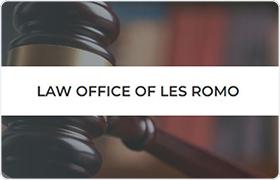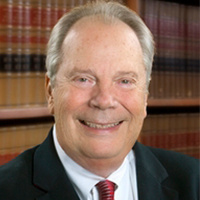Georgetown Real Estate Lawyer, Texas
Sponsored Law Firm
-
 x
x

Click For More Info:
-
Law Office of Les Romo
102 West Morrow Street Suite 202 Georgetown, TX 78627» view mapEstate Law Helping You Understand Your Options
Attorney Les Romo can help protect your interests and resolve your legal issue in the best possible way. Attorney Romo is dedicated to vigorously representing his clients.
800-769-7481
Terry L. Belt
✓ VERIFIEDEstate, Power of Attorney, Elder Law, Wills & Probate, Commercial Real Estate
Terry Belt arrived in Austin in 1965 from the little German town of Weimar, Texas, where he learned to haul hay bales for the local farmers. He attend... (more)
Les David Romo
✓ VERIFIEDWills & Probate, Business, Lawsuit & Dispute, Real Estate, Litigation
Attorney Les Romo graduated from Southwestern University here in Georgetown and went on to earn his Doctorate of Jurisprudence at St. Mary’s Univers... (more)
Crystal Patric Conner Smith
Commercial Real Estate, Construction, Real Estate, Litigation
Status: In Good Standing Licensed: 11 Years
Crystal P. Smith
Commercial Real Estate, Construction, Real Estate, Litigation
Status: In Good Standing Licensed: 11 Years
Abraham Frederic Barker
Real Estate, Litigation, Employee Rights, Transactions, Corporate Governance
Status: In Good Standing Licensed: 28 Years
Michael James Williams
Natural Resources, Construction, Admiralty & Maritime, Insurance, Personal Injury
Status: In Good Standing Licensed: 20 Years
Betsy Jane Johnson
Construction, Federal Appellate Practice, Government, Civil Rights, Administrative Law
Status: In Good Standing Licensed: 26 Years
John Schwab
Commercial Real Estate, Family Law, Business & Trade, Credit & Debt
Status: In Good Standing Licensed: 22 Years
 Les Romo Georgetown, TX
Les Romo Georgetown, TX Practice AreasExpertise
Practice AreasExpertise


